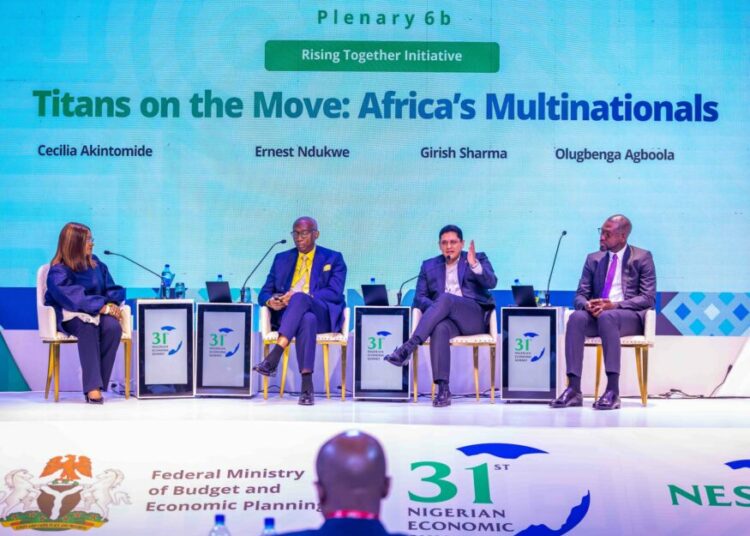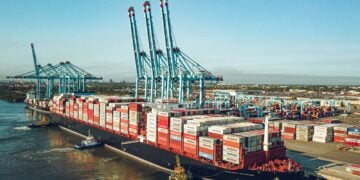Top African business leaders have identified resilience, long-term vision, and strong governance as the pillars driving successful business expansion and sustainability across the continent.
Speaking at the 31st Nigerian Economic Summit (NES #31), themed “The Reform Imperative: Building a Prosperous and Inclusive Nigeria by 2030,” the leaders emphasized that Africa’s future growth rests on the strength of its institutions and the ability of businesses to think beyond short-term cycles.
The summit, organised by the Nigerian Economic Summit Group (NESG), remains the country’s foremost platform for dialogue between the public and private sectors. This year’s edition brought together policymakers, industry leaders, and investors to explore strategies for accelerating reforms and driving inclusive development.
During a session titled “Rising Together Initiative: Titans on the Move – Africa’s Multinationals,” Chairman of MTN Nigeria, Dr. Ernest Ndukwe, said MTN’s success story is rooted in its willingness to explore new frontiers, its solid governance structure, and merit-based recruitment.
“MTN is not a company afraid of going to new places once it has business to do. From South Africa in 1994 to Nigeria six years later, the company’s growth reflects its appetite for expansion and opportunities across Africa. Today, MTN is Africa’s largest telecom operator and ranks among the top six globally,” Ndukwe said.
He attributed MTN Nigeria’s resilience to corporate stability and strategic continuity.
“One of our strongest success stories is stability — no board squabbles, no name changes. Recruitment is strictly merit-based, and our structure empowers people to take responsibility,” he added.
Managing Director and CEO of Guinness Nigeria Plc, Girish Sharma, stressed the importance of purpose, partnerships, and deep understanding of the African consumer.
“Guinness has been in Nigeria for 75 years — older than the country itself — while Tolaram Group has been here for nearly 50 years. What keeps us going is belief in the African consumer story. Beyond natural resources, Africa’s real potential lies in its people and markets. Bringing global brands and local insights together is where the magic happens,” Sharma said.
He cautioned that successful companies in Nigeria must think long-term rather than operate within short political or economic cycles.
“You cannot navigate Nigeria with an election-cycle lens — you are bound to fail,” he warned.
Flutterwave CEO and Co-founder, Olugbenga Agboola, reflected on Nigeria’s innovation journey, describing it as a story of “resilience and reinvention.”
“From no phones to mobile phones and now to real-time digital payments, Nigeria has always been a pioneer. We were among the first countries in the world to adopt chip-and-card payments and instant money transfers,” Agboola said.
He explained that Flutterwave was founded to address Africa’s cross-border payment challenges by building an interoperable digital infrastructure.
“We asked ourselves — why should money from Lagos to Accra take two days? We built the infrastructure to make payments seamless across countries. Today, Flutterwave powers over a million merchants and helps global companies transact easily across Africa,” he noted.
Agboola added that collaboration with regulators is critical for sustaining growth in the fintech space.
“Regulators are not adversaries; they are stakeholders. Once your goals align with theirs — to make the ecosystem better — growth becomes easier,” he said.
Across their experiences, the three business leaders agreed that Africa’s economic future lies with companies that are structured, visionary, and purpose-driven — enterprises that see opportunity not just in markets, but in the continent’s vast human potential.





